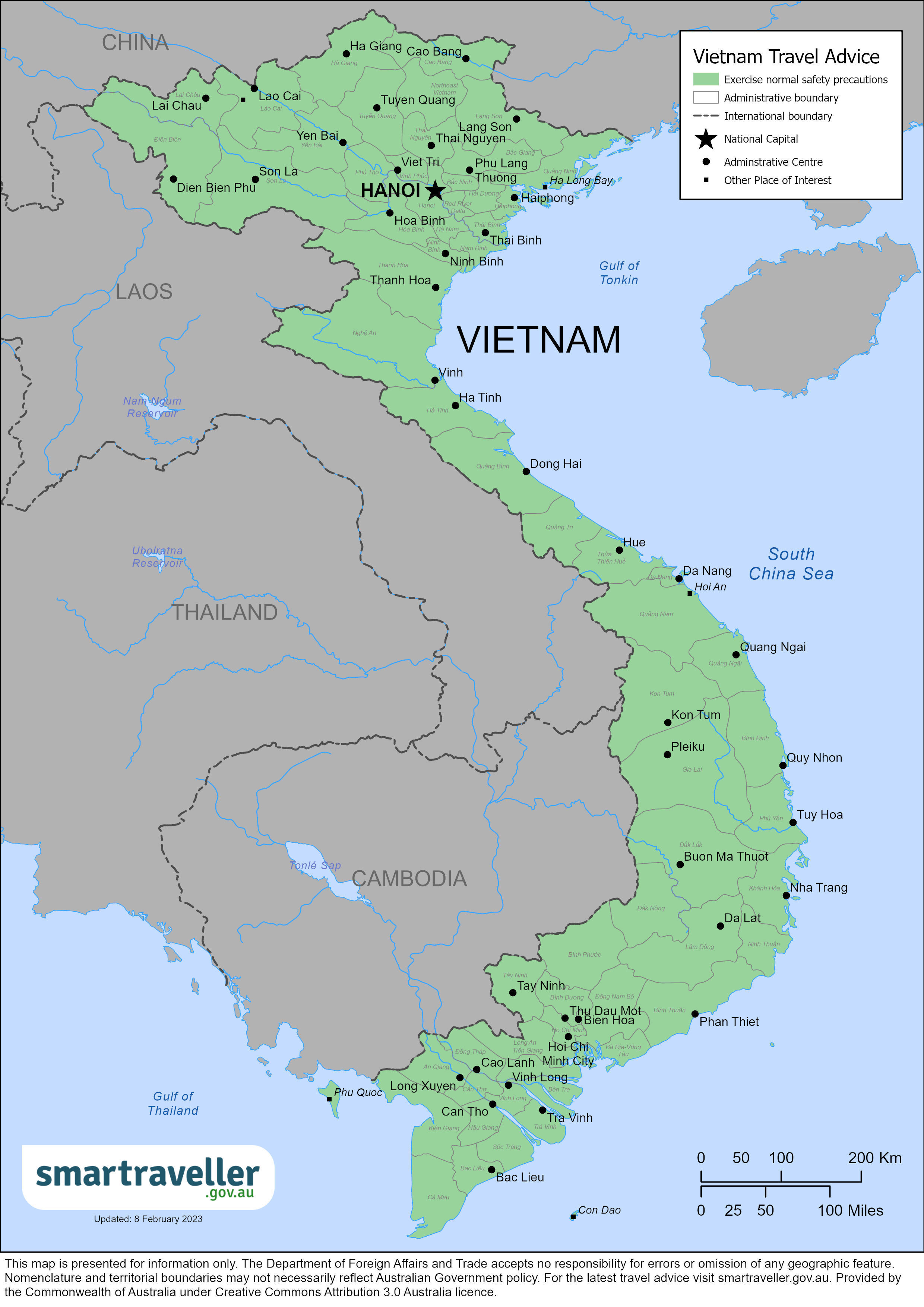Petty crime
Petty crime, street crime and harassment happen, especially in larger cities.
Bag slashing is common in tourist areas, at markets, on crowded trains and buses, and at supermarkets. It increases in the lead up to and during Vietnamese and Western holiday periods.
Thieves on motorcycles commit snatch-and-grab crimes against pedestrians. This happens often and sometimes results in injury.
Thieves steal valuables, such as jewellery, handbags, mobile phones and cameras.
To protect your belongings:
- take care crossing the street or walking along footpaths
- be aware of motorcycles approaching from behind as you walk on the footpath
- hold bags and backpacks in front of you or in ways that make them harder to snatch
- carry only what you need and leave other valuables in a secure location
- be prepared to surrender your valuables rather than risk being injured in a struggle
Violent crime
Aggravated theft, sexual assault and assault happen. Hot spots include:
- Hanoi
- Ho Chi Minh City
- Da Nang
- Nha Trang
- Sapa, especially on the train to and from Lao Cai
- Cat Ba Island, near Ha Long Bay
Reports of groping and other sexual assault are rising.
Drink spiking occurs. Foreigners have been robbed and sexually assaulted after having spiked food and drinks. This happens at late-night establishments in major cities.
To protect yourself from drink spiking:
- only drink alcohol at reputable places
- pay attention when your alcoholic drinks are being mixed
- stay with people you trust in bars and at nightclubs
If you think your drink or a friend’s drink has been spiked, get urgent medical attention.
If you’re a victim of a violent crime, especially sexual assault, get medical attention. There is a risk of contracting HIV/AIDS, hepatitis and other sexually transmitted diseases in Vietnam.
Although gun violence is uncommon in Vietnam, there have been isolated incidents in recent years.
Robbery
Travellers have been robbed after withdrawing money from ATMs.
Break-ins to hotels and private homes are reported. This happens even while guests are in their rooms.
To protect yourself from robbery:
- only use ATMs in banks and shopping centres
- make sure your hotel room is locked at all times, including when you’re inside
- pay close attention to your personal belongings, especially in crowded areas
- be alert on overnight trains and buses and on quiet stretches of road
Report thefts straight away to the local police and hotel management.
Disputes
Personal or commercial arguments sometimes lead to threats of physical violence or death.
If you’re threatened with violence, report it to local police.
To avoid commercial disputes, have a clear agreement on what the expected level of service is.
Scams
Many travellers have become victims of credit and debit card, taxi and gambling scams.
Credit and debit card skimming is where card data is taken for use in fraudulent transactions. This happens throughout Vietnam.
Some Australians have lost thousands of dollars after accepting invitations to private homes from friendly locals. Beware of rigged card games and other confidence tricks organised by criminals.
Gambling may break local laws, which also apply to travellers. See Laws.
To avoid credit and debit card scams:
- keep your credit card in sight at all times
- don’t share or show your PIN to others, especially when using ATMs
- check your transaction statements
At airports, use airport taxis, prearranged hotel transfer services, taxis from clearly marked taxi ranks with staff, or one reserved through a car booking app.
Check that any person holding a placard with your name on it knows where you are going.
Be careful of people who are overly friendly and invite you to their home.
If you’re a victim of a gambling scam, report it to local police.
Cyber security
You may be at risk of cyber-based threats during overseas travel to any country. Digital identity theft is a growing concern. Your devices and personal data can be compromised, especially if you’re connecting to Wi-Fi, using or connecting to shared or public computers, or to Bluetooth.
Social media can also be risky in destinations where there are social or political tensions or laws that may seem unreasonable by Australian standards. Travellers have been arrested for things they have said on social media. Don’t comment on local or political events on your social media.
More information:
Kidnapping
Kidnapping can happen anywhere, anytime, including in destinations that are typically at low risk.
The Australian Government’s longstanding policy is that it doesn’t make payments or concessions to kidnappers.
More information:

